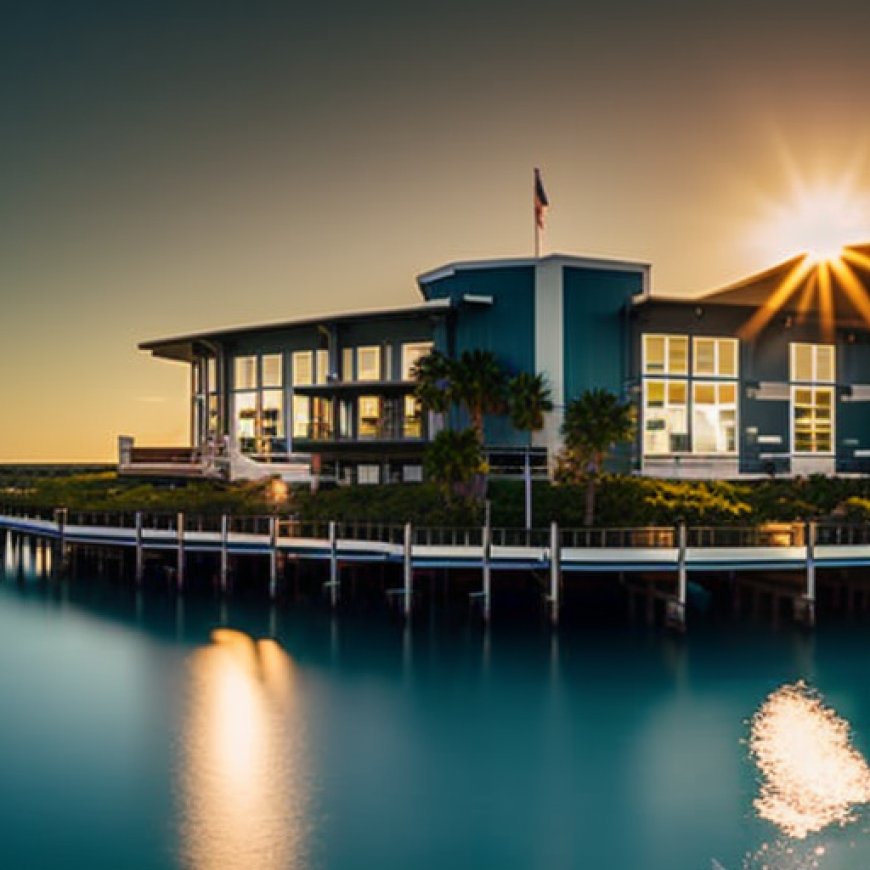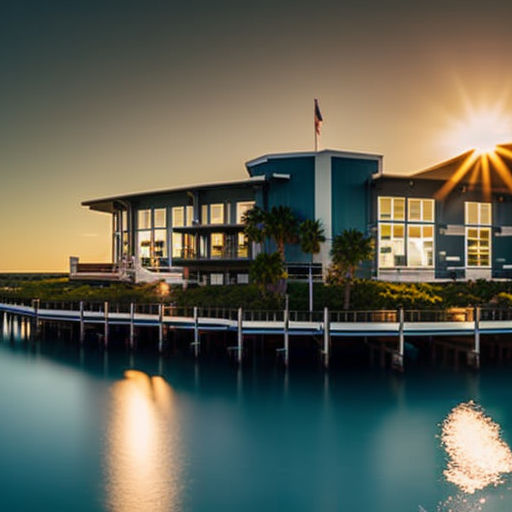SEE HOW: Florida State University Coastal and Marine Laboratory is teaching the community
FSU's Coastal and Marine Laboratory holding an open house WTXL ABC 27 Tallahassee News



Florida State University Coastal and Marine Laboratory Promotes Ecosystem Awareness
- The Florida State University Coastal and Marine Laboratory aims to educate people on the impact of human activities on the ecosystem.
- The laboratory conducts various studies on marine life and factors that affect coastal areas and ecosystems.
Open House to Showcase Research and Raise Awareness
Watch the video to learn more about an open house event organized by the laboratory to provide the public with an opportunity to explore their work.
Broadcast Transcript:
“The more people know about a topic, the more they’re interested in it and the more they’re likely to care about it,” says Jared Fuqua, representative of the Florida State University Coastal and Marine Laboratory. The laboratory emphasizes the importance of raising awareness.
Fuqua actively engages with groups and schools to educate them about their research. He believes that visiting the laboratory is a great way to expose students who have never seen the ocean to the wonderful environment in their own backyard.
The laboratory conducts research that benefits both the local community and the global ecosystem. Their studies cover a wide range of topics related to marine life and any factors that impact coastal areas and ecosystems.
With the goal of sharing knowledge with everyone, the laboratory opens its doors for people to visit. This event takes place every two years and serves as a celebration of 75 years of Coastal Marine Science.
Maddie Mahood, an employee at the laboratory, has witnessed firsthand the significance of their research. She hopes that more people will have the opportunity to experience it as well. Mahood states, “When I’m here and seeing that they’re finding what they’re learning about the animals and plants, I’m thinking it’s right here; we need to know what’s going on.”
Jared Fuqua explains that their main objective is to help the community become more aware and develop an interest in the ecosystem. He states, “Our goal is just to make sure that everybody around us is familiar with this environment and they become as passionate about it as we are.”
Open House Details
The open house event will take place on Saturday from 10 A.M. to 3 P.M. It is free for everyone to attend. Visitors will have the opportunity to learn about a variety of topics, including sharks and native plants.
SDGs, Targets, and Indicators
| SDGs | Targets | Indicators |
|---|---|---|
| SDG 4: Quality Education | 4.7: By 2030, ensure that all learners acquire the knowledge and skills needed to promote sustainable development, including among others through education for sustainable development and sustainable lifestyles | Not mentioned in the article |
| SDG 14: Life Below Water | 14.1: By 2025, prevent and significantly reduce marine pollution of all kinds, in particular from land-based activities, including marine debris and nutrient pollution | Not mentioned in the article |
| SDG 15: Life on Land | 15.5: Take urgent and significant action to reduce the degradation of natural habitats, halt the loss of biodiversity and, by 2020, protect and prevent the extinction of threatened species | Not mentioned in the article |
1. Which SDGs are addressed or connected to the issues highlighted in the article?
SDG 4: Quality Education
The article mentions that the Florida State University Coastal and Marine Laboratory educates groups and schools about their research. This aligns with SDG 4, which aims to ensure inclusive and equitable quality education and promote lifelong learning opportunities for all.
SDG 14: Life Below Water
The article states that the laboratory conducts studies on marine life and anything that impacts the coast and ecosystems. This relates to SDG 14, which focuses on conserving and sustainably using the oceans, seas, and marine resources for sustainable development.
SDG 15: Life on Land
Although not explicitly mentioned in the article, the research conducted by the laboratory on anything that impacts the coast and ecosystems can be connected to SDG 15, which aims to protect, restore, and promote sustainable use of terrestrial ecosystems, sustainably manage forests, combat desertification, halt and reverse land degradation, and halt biodiversity loss.
2. What specific targets under those SDGs can be identified based on the article’s content?
SDG 4: Quality Education – Target 4.7
The article highlights the laboratory’s efforts to educate groups and schools about their research. This aligns with Target 4.7, which aims to ensure that all learners acquire the knowledge and skills needed to promote sustainable development, including education for sustainable development and sustainable lifestyles.
SDG 14: Life Below Water – Target 14.1
The article does not specifically mention any actions related to preventing marine pollution or reducing land-based activities that contribute to marine pollution. Therefore, no specific targets can be identified based on the article’s content.
SDG 15: Life on Land – Target 15.5
The article does not explicitly mention actions related to reducing habitat degradation, preventing biodiversity loss, or protecting threatened species. Therefore, no specific targets can be identified based on the article’s content.
3. Are there any indicators mentioned or implied in the article that can be used to measure progress towards the identified targets?
No indicators are mentioned or implied in the article that can be used to measure progress towards the identified targets.
SDGs, Targets, and Indicators
| SDGs | Targets | Indicators |
|---|---|---|
| SDG 4: Quality Education | 4.7: By 2030, ensure that all learners acquire the knowledge and skills needed to promote sustainable development, including among others through education for sustainable development and sustainable lifestyles | Not mentioned in the article |
| SDG 14: Life Below Water | 14.1: By 2025, prevent and significantly reduce marine pollution of all kinds, in particular from land-based activities, including marine debris and nutrient pollution | Not mentioned in the article |
| SDG 15: Life on Land | 15.5: Take urgent and significant action to reduce the degradation of natural habitats, halt the loss of biodiversity and, by 2020, protect and prevent the extinction of threatened species | Not mentioned in the article |
Behold! This splendid article springs forth from the wellspring of knowledge, shaped by a wondrous proprietary AI technology that delved into a vast ocean of data, illuminating the path towards the Sustainable Development Goals. Remember that all rights are reserved by SDG Investors LLC, empowering us to champion progress together.
Source: wtxl.com

Join us, as fellow seekers of change, on a transformative journey at https://sdgtalks.ai/welcome, where you can become a member and actively contribute to shaping a brighter future.







